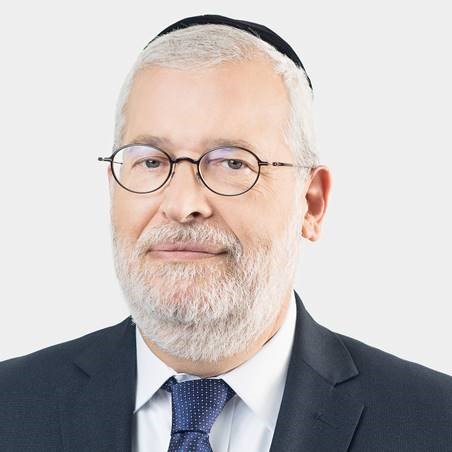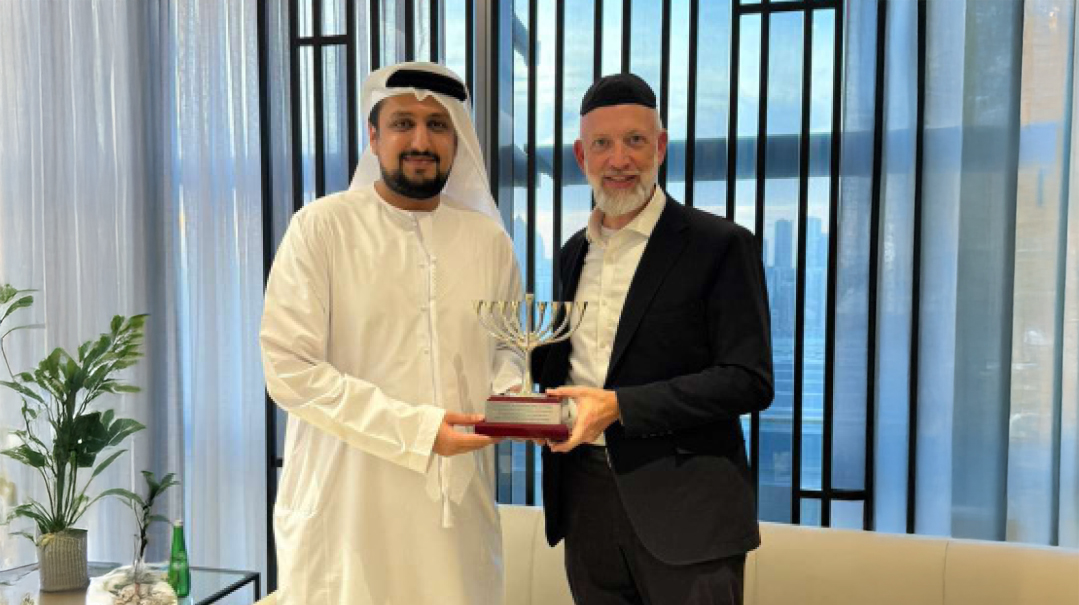Playing By The Rules

The moment that coronavirus appeared in our lives and threatened our familiar routine, it also laid bare a disturbing fact: the decision-makers in Israel’s government are ill-equipped to understand the chareidi sector and its unique needs
T
he relationship between the State of Israel and its chareidi population has arguably never been as fragile as it is at present.
The pervasive tension in the media and on the streets is hard to ignore. Norms of engagement that have survived for 70 years since the State’s establishment seem on the verge of unraveling.
Moreover, this instability has strengthened the radical groups — both religious and secular — who oppose the status quo. Their growing power is manifested in recent violent incidents, and an incitement campaign being waged against the mainstream chareidi community from within and without. A prominent secular media outlet even called for a “secular intifada,” just one voice among many trying to exploit the situation to destroy any hope of coexistence.
**************
The moment that coronavirus appeared in our lives and threatened our familiar routine, it also laid bare a disturbing fact: the decision-makers in Israel’s government are ill-equipped to understand the chareidi sector and its unique needs.
Long before this pandemic, it was clear that virtually all the government ministries lack the information, understanding, and approach to deal effectively with the demands and needs of the chareidi sector. When the present crisis hit, however, the ramifications of the vast disconnect between decision-makers and the chareidi society became enormously significant. The issue at hand is not one more or less chareidi classroom; instead, we are dealing with life and death. Consequently, the tension levels have spiked accordingly.
Many of the government directives issued throughout the pandemic were unrealistic and impractical for the chareidi sector. And as the well-known dictum of Chazal goes: “One does not issue a decree on a tzibbur unless most of the tzibbur can withstand it.” As of this writing, no one in Israel’s decision-making echelons has sat down seriously with those who understand the needs of the chareidi sector in an attempt to draft a realistic policy proposal.
It is important to note that at the start of the pandemic, during the first lockdown, almost all the chareidi poskim followed the governmental guidelines. The regulations were so severe as to be almost unbearable, but nonetheless, a majority of shuls closed, Torah institutions moved into emergency mode, and tens of thousands of people davened in outdoor minyanim.
Then came a moment of crisis. At a certain point, the rabbanim learned, to their alarm, that the government’s considerations were not limited to medicine and halachah, but were driven by politics, too. It turned out that although it was forbidden to daven and learn in public, there was one value for which even pikuach nefesh was disregarded: demonstrations. The moment when the raucous demonstrators set out for Balfour can be marked as the pivotal turning point.
One prominent posek told me: “We have a tradition of how we handle questions of medicine, science, and halachah. But we have no tools to rule on questions of political interests, news broadcasts, and journalists’ statements. When we realized that it was not doctors who were making the decisions, but rather the politicians and the media, we gave up.” The unfortunate results speak for themselves.
**********
Throughout the pandemic, responsible chareidi leaders have made efforts to isolate the halachic questions from the political ones. For example, once it became clear that the Health Ministry’s guidelines were not guided by science alone, a group of chareidi leaders approached scientists and experts at the Weizmann Institute to develop medical guidelines that would allow them to navigate the virus in accordance with halachah’s primacy on medical consensus, while maintaining whatever form of religious practice could be allowed within such a framework.
One of the most fraught moments came after Succos, at the beginning of the second wave. Once again, the chadarim were instructed to close their doors. A group of dedicated principals were asked by Rav Chaim Kanievsky to create a framework that would allow children to return to cheder safely, in coordination with health experts and medical advisors. A plan was crafted to return to school in “capsules” — small groups, with masks, expanded testing, and adherence to all rules. The plan was approved by all the relevant health authorities.
But then the principals ran into the brick wall of the Justice Ministry. The government passed the message back to chareidi leadership that there is no “legal way to create an individual education framework for each different sector. Only when all the schools resume studies can we approve the opening of the [chareidi] talmudei Torah.” The effort to responsibly and diplomatically manage the issue with a plan that could restore the kol Torah to the beis medrash was thwarted — even though the medical professionals attested that it would not have endangered the health of the public or the students.
**********
It is important to place current events into a broader context — this is not the first crisis that the chareidi sector has encountered in its relationship with the State of Israel. The complexity of the relationship preceded the establishment of the State itself. Even before independence was declared, rabbanim met and grappled with how to handle the needs of chareidi society within the nascent state, and two schools of thought emerged among gedolei Yisrael.
The first school argued that there is no way whatsoever for Torah-observant Jews to work with a secular government. The conclusion of these gedolei Torah was clear: “Their laws have no bearing on our reality.” The followers of these gedolim took no part in elections, sent no representatives to the Knesset, requested no funding, and exhibited no desire to cooperate as a matter of principle.
On the other side were the majority of gedolei Torah from across the spectrum of chareidi Jewry — Ashkenazi, Sephardi, chassidish and litvish — who made a decision that was in no way simple. They chose to partake fully in the political and public management of the state. They appointed representatives who would bring the voice of gedolei Torah to the Knesset, and to advocate for the values and needs of the chareidi sector, in accordance with parliamentary procedures. This included involvement in Knesset committees and legislative process, and even appointments to cabinet positions.
Both of these groups have always acknowledged the huge gap that exists between us and the secular public. And both agree about the importance of preserving chareidi control over our communal institutions and way of life. However, the differing approaches meant that each group handles the challenges differently. Those who chose to participate in the general system also chose a commitment to utilize official channels to handle any friction that might arise. Our gedolim have guided us as to how this dynamic should look, and how our representatives must remain deliberate and responsible as they make our voices heard in the legislative body.
From the very start, these gedolei Yisrael have been aware of the disconnect between secular decision-makers and chareidi constituents. They knew it would be difficult to bridge the gaps. Nevertheless, they decided to largely avoid unilateral moves, mass demonstrations, vandalism, and destructive acts, and instead to sound their voices within the official channels.
For the majority of Israel’s chareidim, that approach remains our mandate today. Even when the legally available routes are not convenient for us — and they are never ideal — our sense of responsibility and our commitment to our gedolim’s directives mean that we must try to continue to work within the system. This is certainly the case if we hope to wield a positive influence on our broader environment — from the institutions of marriage and conversion, to preserving the sanctity of Shabbos.
It is clear that we must face today’s disturbing reality with the same values that have always defined us. Violent protests and destruction are not our way. We must return to the carefully weighed policy decisions of our gedolim and to our historic commitment to working within the system — hostile as it may seem — because that is the direction we received from our leaders.
******
Yet in order for us to function within the system, it is essential that both sides (chareidi and non-charedi alike) adhere to the same rules. One of the takeaway messages from the coronavirus crisis is that there is no way for Israel’s government to manage any public policy, in any area — housing, education, finance, and health — without recognizing the unique needs of the chareidi sector.
It is inconceivable that the decision-makers in the State of Israel should continue to ignore the fact that there is an entire sector here with its own unique qualities, needs, and worldview. If they continue to do so, they ought not be caught by surprise when policies fail to be enforced properly. It is unacceptable that the law-enforcement body of that same state reacts to the ensuing unrest by losing all restraint — as the police did in Bnei Brak last week.
It is inconceivable that the chareidi public should remain completely excluded from the middle and senior ranks of the country’s professional governmental positions, and that the government continues to advance plans that are completely disconnected from — or that directly collide with — our sector’s needs and values.
It is inconceivable that senior economists should complain day and night about the difficulties of integrating the chareidi sector into the labor market, while simultaneously creating obstacles to this sector’s path to employment.
Six years ago, the mounting need to mediate these issues led me to establish the Haredi Institute for Public Affairs. The Haredi Institute is a non-profit with the mandate to provide the government and other stakeholders with knowledge and data related to the chareidi population. The organization is unique in its ability to work hand-in-hand with policymakers and chareidi leadership (rabbanim, politicians, etc.) alike, to implement policies and plans that account for the unique needs and characteristics of the chareidi population. By creating professional tools to help foster understanding and cooperation between the sectors, we can hope to avoid future conflicts.
The current situation certainly looks catastrophic, but if we find the wisdom to deal with it, we may discover that the crisis contains countless opportunities. It can be boiled down to one fundamental question: will the bridge-burners on both sides prevail, or will we be able to manage our challenges with cooperation, mutual respect, productive dialogue, and agreement to abide by the rules of the game?
That is the challenge we have dealt with in the past and it is the challenge we face today. Will we be able to overcome it in the future as well?
Oops! We could not locate your form.













